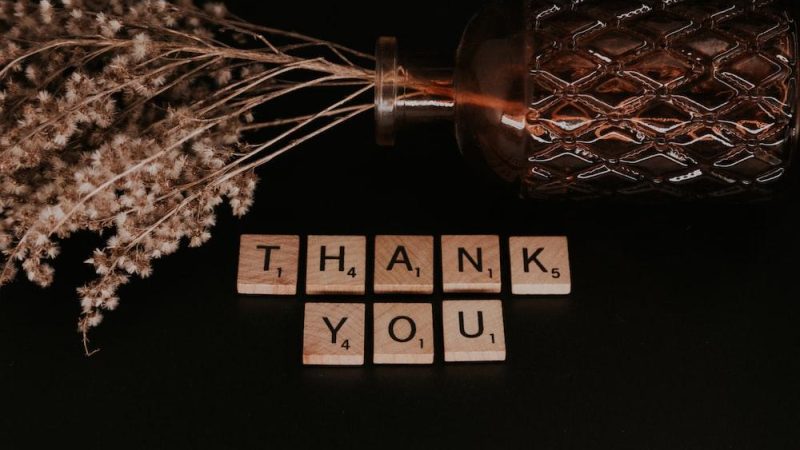Expressing gratitude is a universal practice, but the way we say “thank you” can vary widely from one culture to another. If you’re looking to master the art of saying “Dutch Thank You, you’ve come to the right place. Understanding how to convey your appreciation in a way that resonates with Dutch speakers can make your interactions more authentic and meaningful. In this guide, we’ll explore ten powerful ways to say “thank you” like a local, ensuring you leave a positive impression every time.
Dutch Thank You: The Basic and Essential Phrase
The most straightforward way to say “thank you” in Dutch is by using the phrase “dank je wel” or “dank u wel”. The former is informal, used among friends and family, while the latter is formal, suitable for professional settings or when addressing someone you don’t know well. This simple phrase is your go-to when you want to express gratitude politely and effectively.
Dutch Thank You in Different Contexts: Thanking Informally
When you’re among friends or in a casual setting, you might use the informal “bedankt”. This is a versatile way to say “thank you” and can be used in a variety of situations. For instance, if someone hands you a cup of coffee or helps you with a small favor, a heartfelt “bedankt” is both sufficient and appreciated.
Dutch Thank You with Emphasis: Adding Extra Appreciation
To add a bit more emphasis to your thanks, you can use “hartelijk bedankt”, which translates to “heartfelt thanks.” This phrase conveys a deeper level of appreciation and is often used when someone has gone above and beyond. Whether you’re grateful for a big favor or simply want to express extra gratitude, this phrase will do the trick.
Dutch Thank You: Showing Appreciation for Help
When someone has assisted you, you might want to acknowledge their help specifically. In such cases, “bedankt voor je hulp” (thank you for your help) is an excellent choice. This phrase clearly conveys that you appreciate the effort and support someone has provided, making your gratitude more specific and personal.
Dutch Thank You for a Gift: Acknowledging Thoughtfulness
If you’ve received a gift and want to express your gratitude, use “dank je voor het cadeau” (thank you for the gift). This phrase shows that you value not just the gift itself but also the thought and effort behind it. It’s a polite way to acknowledge someone’s kindness in giving you something special.
Dutch Thank You in a Formal Setting: Professional Appreciation
In formal or business contexts, you might need a more polished expression of thanks. “Ik waardeer het zeer” (I appreciate it very much) is an appropriate choice here. It conveys respect and acknowledges the value of the assistance or gesture you’ve received in a professional manner.
Dutch Thank You: Expressing Gratitude for a Favor
When someone has done a favor for you, a sincere way to say thank you is “dank je voor de moeite” (thank you for the effort). This phrase shows that you recognize the time and energy someone has invested in helping you, making your gratitude more specific and meaningful.
Dutch Thank You: A More Casual Alternative
In more relaxed settings, you might use “bedankt hoor”. This phrase is a bit more informal and friendly, often used in casual conversations. It’s a great way to convey your thanks in a laid-back manner, making it perfect for everyday situations.
Dutch Thank You: When You’re Truly Grateful
For situations where you feel extremely grateful, you can say “ontzettend bedankt” (immensely thankful). This phrase expresses a high level of gratitude and is perfect for when someone has done something particularly special or significant for you.
Dutch Thank You: A Phrase for Appreciating Someone’s Time
If someone has spent time with you or given you their attention, you might use “dank je voor je tijd” (thank you for your time). This phrase is particularly useful in professional or formal settings where acknowledging the value of someone’s time is important.
Conclusion
Mastering the art of saying “thank you” in Dutch not only helps in making meaningful connections but also shows respect for the culture and its customs. Whether you’re in a formal setting or a casual gathering, these ten phrases will equip you with the right words to express your gratitude effectively. Remember, it’s not just about the words you use but also about the sincerity behind them. By using these Dutch thank you expressions, you’ll convey genuine appreciation and leave a lasting positive impression.
FAQs
Q1. What’s the difference between “dank je wel” and “dank u wel”?
Dutch Thank You” is used in informal settings with people you know well, while “dank u wel” is more formal and appropriate for professional interactions or when addressing someone you don’t know personally.
Q2. Can I use “bedankt” in formal situations?
“Bedankt” is generally used in informal contexts. For formal situations, phrases like “hartelijk bedankt” and “ik waardeer het zeer” are more appropriate.
Q3. How do I express thanks for a gift in Dutch?
You can say “dank je voor het cadeau” to specifically thank someone for a gift.
Q4. What’s a casual way to say thank you in Dutch?
A casual way to express thanks is by saying “bedankt hoor.” It’s friendly and suitable for everyday conversations.
Q5. How do I acknowledge someone’s effort in helping me?
You can use “dank je voor de moeite” to show appreciation for the effort someone has made in assisting you.
Also read: Thank You in Dutch: 10 Simple Ways to Say It Like a Native









